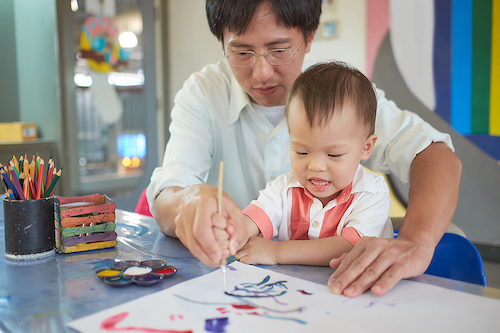 Children who are close to their parents early in life are more likely to be kind, helpful and prosocial when they grow up.
Children who are close to their parents early in life are more likely to be kind, helpful and prosocial when they grow up.
Researchers from the University of Cambridge found that children who had a strong bond with their parents early in their life were more likely to treat others kindly and act with empathy.
“Essentially, taking time to build warm, close, comforting and understanding relationships between parents and children in early childhood tends to predict children’s resilience against mental health difficulties and increases their levels of prosociality throughout childhood and adolescence. Fractious, angry and manipulative relationships will have the opposite effect,” Ioannis Katsantonis, the lead author of the study and a doctoral researcher specializing in psychology and education at Cambridge told Theravive.
“If parents also take steps to prevent aggressive behaviour and conduct problems early, they could also be supporting their child’s future prosociality (the chances of them acting kindly and considerately). Unfortunately, greater than average prosociality was not a salient predictor of lower than usual mental health symptoms. On the other hand, if we build a "trait", that is, a habit, of being prosocial over time, then we usually have stable low levels of mental health symptoms.”
In undertaking the research, Katsantonis and his colleagues examined data from more than 10 thousand people born between 2000 and 2002. The data came from the Millenium Cohort study which follows the development of people born during this time period.
Surveys were used as part of the study to determine factors like prosociality, depression, anxiety and aggression. The survey also provided information on whether the participants experienced maltreatment from parents by age three. Maltreatment including things like physical and verbal abuse.
The survey also examined the presence of factors like emotional conflict and closeness between child and parent.
The researchers discovered that children who experience a loving and warm relationship with their parent at three years of age typically had fewer mental health problems throughout childhood and adolescence. They also showed heightened levels of prosocial behavior.
Prosocial behavior are behaviors that are socially desirable and benefit others. This includes things like showing empathy, kindness and generosity or volunteering.
“These early years are crucial for children’s development of prosocial behaviours. As children age and become adolescents, prosocial behaviour becomes more intentional and consistent. Therefore, as our study and previous studies have shown, placing emphasis on teaching and imitating prosocial behaviours in the early years might be beneficial for later-life prosocial tendencies (that is, the ‘trait’ of prosocial behaviour becomes more constant after early adolescence),” Katsantonis said.
Children who experienced an abusive or emotionally strained relationship with their parents early in life were less likely to display prosocial behaviors.
Katsantonis says it is important that parents take the time to bond with children in their early life and provide physical comfort for them.
“The key is to take steps early when both mental health and prosociality are more malleable. The current study showed that building warm and close relationships with your child at age 3 is very crucial for later-life prosocial habits and resilience. This might include something as simple as finding the time to bond with your child early on. It is also important to share physical comfort, to make the child realize the benefits of valuing the parents’ relationship with them, to praise the child, and be approachable. In contrast, maladaptive parent-child interactions characterized by conflict (e.g., anger, struggling, bad moods) and maltreatment (e.g., smacking) are harmful for the children’s mental health and prosocial ‘traits’,” he said.
“It is completely natural to feel overwhelmed at times, especially when juggling multiple responsibilities such as work, finances, and parenting. Remember, forming a close bond with your child does not always mean engaging in elaborate activities or dedicating vast amounts of uninterrupted time. Often, it is the small moments—the spontaneous hugs, the bedtime stories, the shared laughter over a silly joke—that foster deep connections. Every parent's journey is unique, and there is no one-size-fits-all approach to building a bond with your child. What matters most is your genuine love, presence, and the intention behind each interaction.”
Elizabeth Pratt is a medical journalist and producer. Her work has appeared on Healthline, The Huffington Post, Fox News, The Australian Broadcasting Corporation, The Sydney Morning Herald, News.com.au, Escape, The Cusp and Skyscanner. You can read more of her articles here. Or learn more about Elizabeth and contact her via her LinkedIn and Twitter profiles.